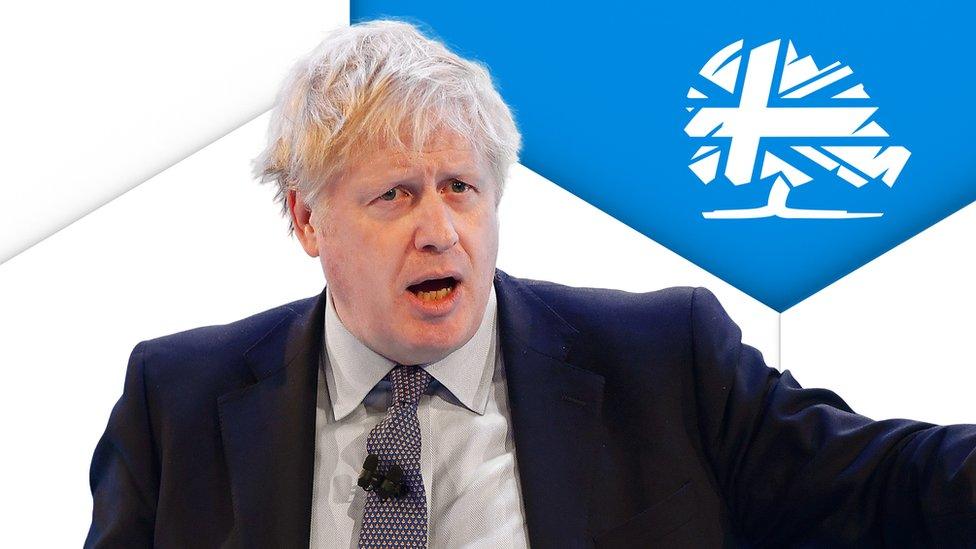The big election trade-off - what have we learned?
- Published
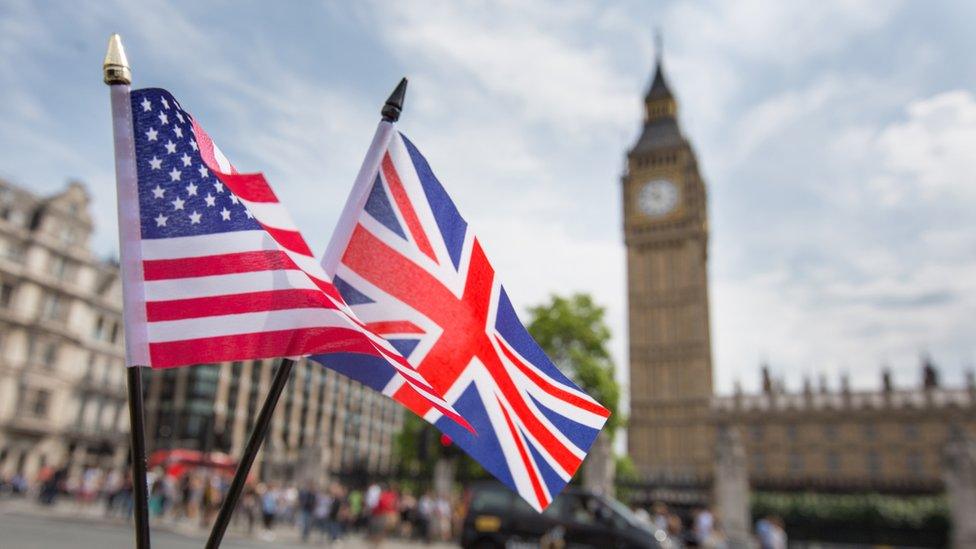
The emergence of these lengthy secret accounts of two years of US-UK trade discussions are important for several reasons.
They are the clearest account of a deal that could be done and dusted in the Parliament that is about to be elected.
Almost zero detail on the approach to such a deal has been outlined in manifestos.
The documents show there could be widespread consequences, not just for the economy, but also important trade-offs to be made by the government elected next month.
NHS Plot?
The papers don't show a secret plot to sell the NHS or a "plot against the country".
But they do show that pharmaceutical pricing has been on the table, and has been discussed between UK and US officials and UK and the US pharmaceutical industry.
That is not a surprise, it was clear from the official US Trade objectives published in February, external that sought "procedural fairness" and "full market access" for US pharmaceutical companies.
So they have been discussed in scoping discussions by officials. But the prime minister and the Conservative manifesto promises voters that the "price the NHS pays for drugs will not be on the table" - presumably in the future. The PM is promising to resist and reject the US strategic objective to increase the price paid to its drugs companies.
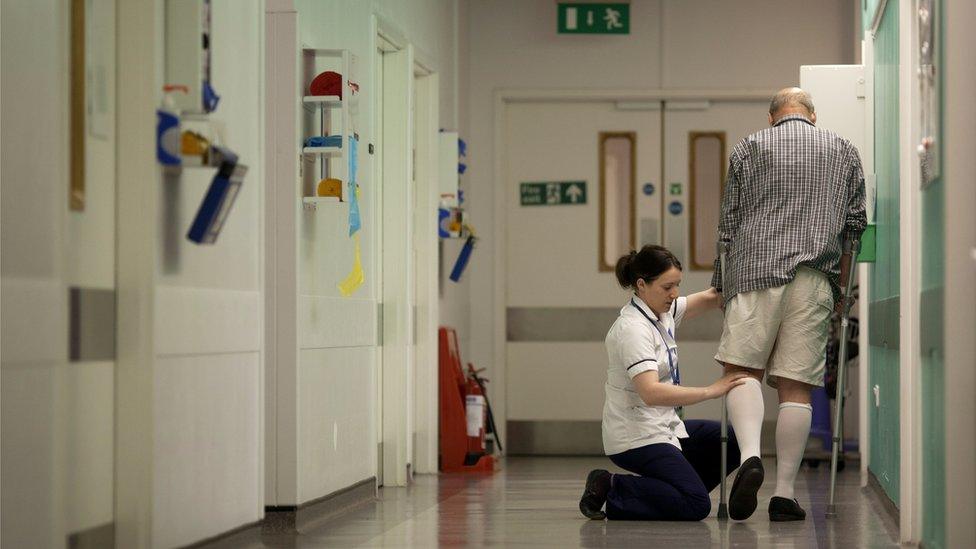
Chicken and food standards
There are clear references to US negotiators asking the UK to diverge from existing EU standards for "Pathogen Reduction Treatments", which include the chlorination of chicken in order to remove bacteria.
The US team offered to share its marketing material on the benefits of chlorinated chicken, to help persuade the public. Also the US raises EU restrictions on anti-microbial usage as "a significant concern".
It was the Conservative government that pushed hard for such restrictions in the first place amid fears that their overuse is rendering them increasingly ineffective.
One meeting was described as "challenging and difficult" because Theresa May's Chequers deal would have prevented changes on this. The now PM Boris Johnson resigned from Cabinet because of Chequers, and such changes are now possible under his deal.
The Conservative manifesto says we "will not compromise our high food standards".
Digital tax
Big US tech firms are unhappy with the idea of the government's tax on digital services, and it has been described as a deal breaker for a US-UK trade deal. The issue wasn't raised by US officials according to the documents, but it is mentioned by UK officials who anticipate that it will feature as a "senior/political" issue.
The Conservatives have a manifesto commitment to implement the tax.
Economic impact
The big picture here is that US officials repeatedly question Theresa May's decision to keep the UK economy close to the EU's. The former PM did this because of concerns of the manufacturing industry.
US negotiators said repeatedly that such a close relationship would harm prospects of a US deal, even apparently welcoming the possibility of No Deal as "all to play for". This broad position has been backed by the current PM, who is offering the electorate a more distant relationship with Europe in order to pursue a US trade deal.
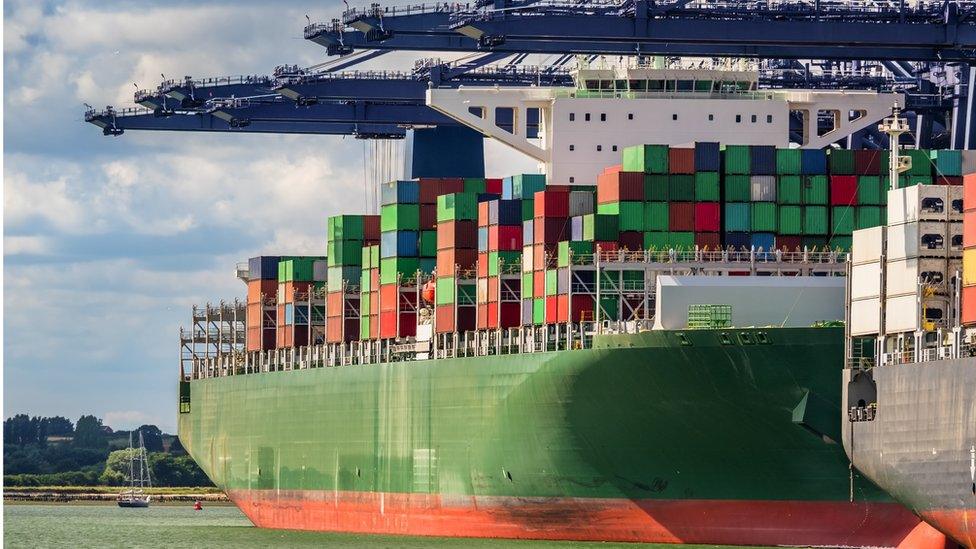
That is good for some sectors and regions, and bad for others, such as for example car manufacturers dependent on the free flow of parts around the EU. The papers show that there was an attempt to quantify the benefits of a US trade deal, stating: "the macroeconomic results were small".
But a US-UK deal alongside a more distant "hard Brexit" with tariffs between the UK and the EU was both less good for the UK, and better for the USA. In particular, a "hard Brexit scenario" saw a "larger expansion in US exports in dairy and meat" to the UK.
The real message in these documents is not about an NHS plot, it is about shining some light on one of the most important sets of decisions due to occur in the next Parliament. A decision with big implications and trade-offs for jobs and growth up and down the country.
- Published27 November 2019
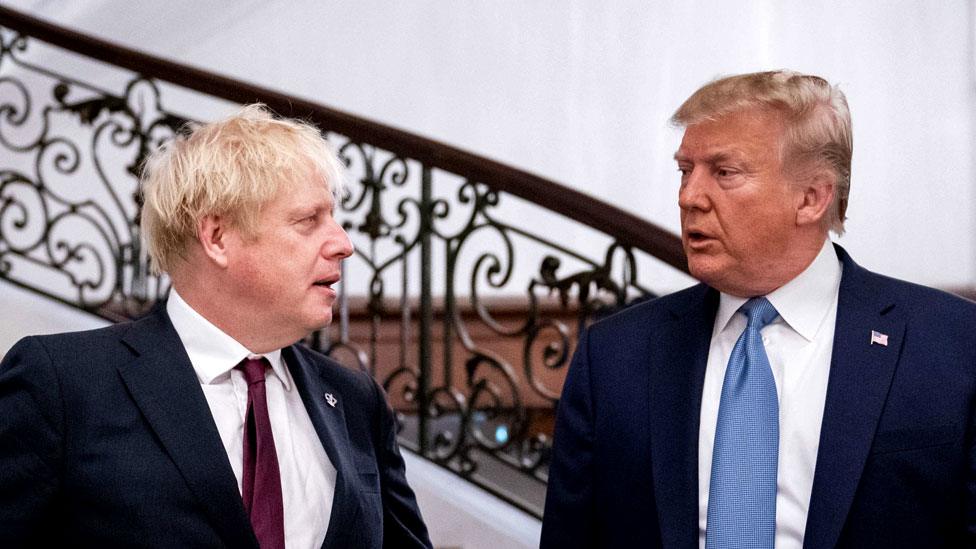
- Published24 November 2019
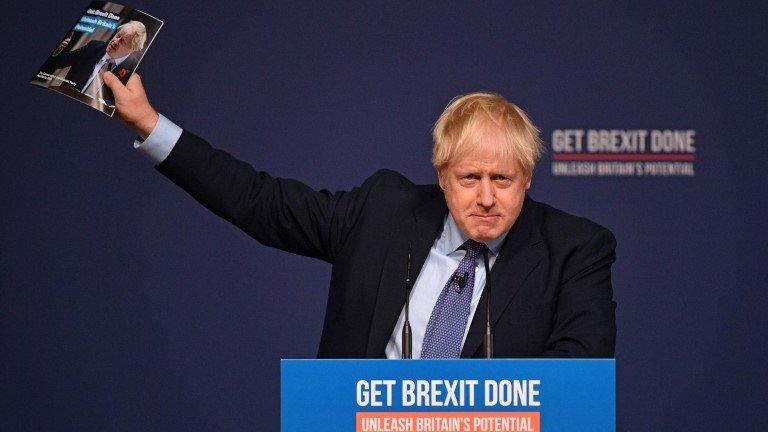
- Published24 November 2019
